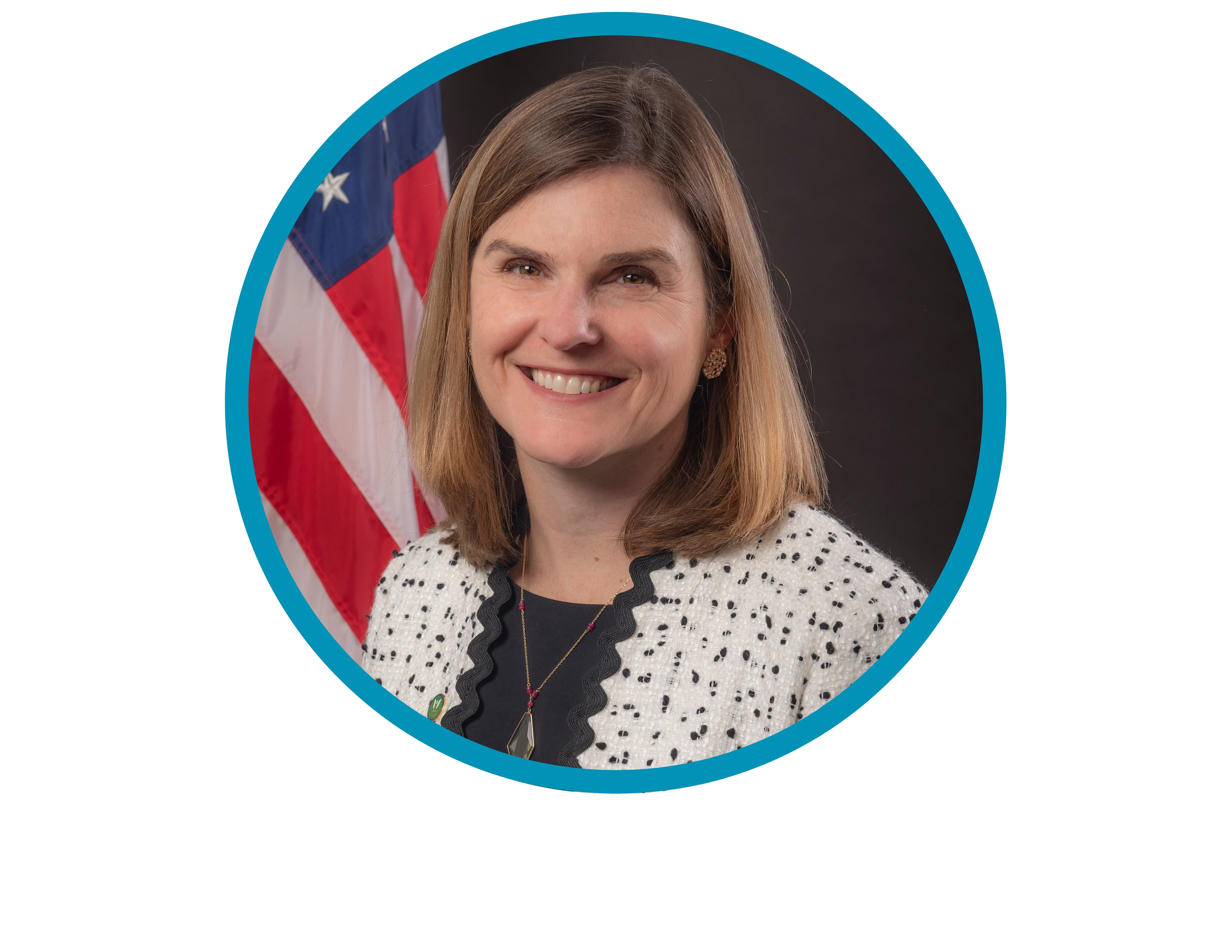Recent Posts
Blog Categories
- Newsletter (416)
Welcome to the weekly newsletter of the Michigan Energy Innovation Business Council (Michigan EIBC), the business voice for advanced energy in Michigan. Here’s what’s new this week:

Dispelling Myths About Renewable Energy, the Crisis in Texas and Lessons for Michigan
Following the crisis in Texas, there has been misleading information that attempts to pin the blame on renewable energy. As much as the evidence of what generation sources were available in Texas has thoroughly debunked the idea that renewables are to blame, the inaccurate arguments are spreading to affect energy policy debates all over the country. We’ve crafted a response to these misleading claims regarding Michigan.
One of the biggest differences between Texas and Michigan in terms of energy has to do with the source of heating: electricity is a big source for Texas, but not Michigan, which more heavily uses natural gas. As a result, the arctic temperatures in Texas have strained their electric power system, in contrast to the 2019 polar vortex in Michigan which led to spikes in natural gas prices but the electric grid stayed reliable. It would be a mistake, however, to blame electrification for the situation in Texas. As the blog post explains, “the causes of the problems in the Electric Reliability Council of Texas, or ERCOT… are multifaceted and will be evaluated and discussed for some time, but appear to be rooted in complex questions around market design and, as Princeton University’s Jesse Jenkins put it, a failure to ‘future-proof’ the grid in Texas —not electrification.”
EV Convening to Examine Biden Policies to Spur Electrification of Mobility
“Has the electric car’s moment arrived at last?” reads a recent headline from National Geographic, and, while the transition toward EVs has been going on for some time, there is no denying that announcements by the Biden administration and General Motors in the early part of 2021 have shone a bright spotlight onto EVs. In addition, on Feb. 26 Gov. Whitmer’s recently-formed Council on Future Mobility and Electrification released its first annual report, which examines Michigan’s existing assets in the mobility space and looks to the future. “This report’s key finding is that to fully take advantage of the opportunity ahead of us, Michigan must work collaboratively with partners to address several challenges,” the report said. Those challenges include workforce transition and development, low EV adoption rates and startup and second-stage business development. Now that the White House and GM have set their goals toward speeding up EV deployment, the question is: what policies will actually get us there and how can Michigan ensure that we’re able to take advantage of upcoming opportunities? There has been a great deal of speculation about what policies will be essential, from expanding federal EV tax credits to ensuring an open supply chain for key EV components.
On March 1, Michigan EIBC’s next EV Convening will tackle what is next for mobility given all the recent scrutiny on EVs. We have recently announced panelists and speakers for the convening, including Judd Herzer of the Michigan Office of Future Mobility and Electrification and JR Tolbert of Advanced Energy Economy. There also will be small-group discussions on key topics.
RSVP for the EV Convening here.


Michigan EIBC Details 2021 Policy Priorities at House Energy Committee Meeting
On Feb. 24, Michigan EIBC President Dr. Laura Sherman appeared before the Michigan House Energy Committee to present an overview of Michigan EIBC and its policy priorities to legislators.
In testimony, she discussed priorities like upcoming community solar legislation, an expansion of the use of commercial PACE financing, extensions of energy efficiency standards for municipal and cooperative utilities beyond 2021, policies to support the growing number of EVs on Michigan roads and the elimination of the distributed generation cap.
Regarding commercial PACE financing, committee chair Rep. Joseph Bellino (R-Monroe) told Sherman that he would like to see previous legislation to expand that energy efficiency financing tool re-introduced. Bellino described how he has seen firsthand the benefits of financing for energy efficiency projects, including at Monroe Community College, which worked with Michigan EIBC member Ameresco to build a new geothermal heating system for the college buildings. “We are saving money every year” through more efficient energy use, Bellino said.

Fireside Chat with MPSC Commissioner Scripps and FERC Commissioner Allison Clements Announced for Energy Innovators Conference
Michigan EIBC invites you to join us on Wednesday, April 7 from 9:10 am to 12:30 pm EST for the 9th Annual Energy Innovators Conference. The virtual conference will take place via Zoom.
We are happy to announce a Fireside Chat with Michigan Public Service Chairman Dan Scripps and FERC Commissioner Allison Clements.


Dan Scripps was appointed by Governor Gretchen Whitmer to the Michigan Public Service Commission on February 21, 2019 and was designated as Chair in July 2020. His term ends July 2, 2023. He also serves on the Upper Peninsula Energy Task Force and Michigan Dam Safety Task Force. Mr. Scripps is a member of the Board of Directors of the National Association of Regulatory Utility Commissioners (NARUC) and serves on NARUC’s Committee on Critical Infrastructure and its Task Force on Emergency Preparedness, Recovery, and Resiliency. He is also active with NARUC’s Committee on Gas, Committee on International Relations, and Washington Action Program.
Commissioner Allison Clements has two decades of public and private sector experience in energy regulation and policy, representing utilities, independent power producers, developers and lenders, nonprofits and philanthropies on grid policy issues. Prior to her time at FERC, she spent two years as director of the energy markets program at Energy Foundation.
The content of the half-day virtual conference features prominent speakers and panelists who will discuss the latest energy-related topics and innovations. There will also be a 45 minute mid-conference networking session with a variety of self-selected breakout rooms and the opportunity to speak with other participants of your choosing.
The keynote speaker for the conference is Pete Kadens, serial entrepreneur and dedicated philanthropist who currently serves as the chairman of The Kadens Family Foundation, a charitable organization dedicated to closing the pervasive wealth and education gaps in the US.

RSVP today! Tickets start at $25.
Sponsorship opportunities are available and can be found on the Michigan EIBC website.
Event Sponsors
Terawatt Level

Megawatt Level

Kilowatt Level

Renewing Members

Energy Alliance Group of Michigan
In 2012, The Energy Alliance Group of North America (EAG) was started for one purpose, to develop and deploy innovative solutions to energy, waste, and environmental challenges around the world.
The differentiating strength of our methods for developing solutions is the holistic approach we take and the extensive knowledge we and our partners have, in technology, financing, incentives, and integrated services – all critical elements to insuring the highest return on investment (ROI) for our clients.
Unlike most competitors, EAG is technology agnostic and solution driven. Representing or distributing no particular product or technology, our clients are provided with an optimal solution – not one in which EAG has a vested financial interest. In addition to reducing utility costs, we identify a number of incentives and operational savings to maximize our clients ROI. These include tax incentives, tax credits, utility choice, and other operational cost recovery services that complement the holistic approach we take.
For each opportunity, EAG defines the total cost of ownership for a period of 20-years or longer. Combined with the utility reduction to be achieved, our life cycle cost models include qualified credits and incentives, and identify maintenance, end of life replacement costs and inflation costs – all representing the true cost of ownership and return on investment. This capability and area of expertise, allows a “cradle to grave” approach to efficiency improvement and cost recovery solutions for energy, waste, and environmental challenges, large or small.
Together with our technology and service partners, EAG is considered a leader in developing and deploying solutions for energy, waste and environmental challenges, with an expertise in Property Assessed Clean Energy (PACE) funded projects.

Homeland Solar’s mission is to make owning one’s own power EASY and AFFORDABLE for individuals and organizations, public and private, commercial and residential.
The company is an engineering, design and installation firm with a great professional reputation and a strong commitment to working with its customers to optimize energy solutions. Trust, reliability and economy are its hallmarks.
Solar systems can be regarded as Mother Nature’s gift of sustainability to our pale blue dot. Why not own your own power and support sustainability? Start by sending your utility bill to estimate@homelandsolar.comor call 844-9-own-sun. Thank you.
Michigan Energy News
- While Michigan is better protected from the risks that led to the Texas blackouts, Michigan has its own reliability problems with the distribution grid that need addressing, advocacy groups say.
- Gov. Whitmer says in testimony before the U.S. Senate Environment and Public Works Committee that the country needs more protections from climate risks for basic infrastructure, as well as more investment into EV charging stations.
- The Michigan Dam Safety Task Force releases its final report, warning of a possible “grave situation” for many dams “if significant investments are not made in the short and medium term.”
- Lawmakers from both sides of the aisle in the state legislature are backing the new bill to lift the distributed generation cap, MiBiz reports.
- DTE is appealing a court decision finding that regulators erred when issuing an air permit for the utility’s new gas-fired power plant.
- Gov. Whitmer declares a state of emergency due to abnormally high demand for propane for heating.

National Energy News
- Just months after beginning her role as chairwoman, former MPSC Commissioner Sally Talberg resigns from the ERCOT Board of Directors along with several other board members who live outside of Texas.
- As grid modernization leads to rate increases, policymakers should consider changing utility rate structures so that they are less regressive for the poor, according to a new report from the University of California, Berkeley.
- In a 64-35 vote, the U.S. Senate confirms former Michigan Gov. Jennifer Granholm as secretary of the U.S. Department of Energy.
- A bill to require Maryland to cut emissions 60% by 2030 advances in the state legislature.
- The U.S. Post Office awards a winner for a contract to provide the office with both electric vehicles and efficient gas-powered vehicles over the next 10 years, and Ford may play a role as a supplier.
Michigan and National Energy Events
On March 10 the University of Michigan’s School for Environment and Sustainability and Center for Sustainable Systems is hosting a virtual lecture and casual conversation with Naomi Klein, best-selling author of On Fire: The (Burning) Case for a Green New Deal and other books. RSVP here.
The Upper Peninsula Clean Energy Virtual Conference Series continues with “Building Electrification Technology & Ramping Up Energy Efficiency” on March 12 and “Task Force Report & Legislative Policy Update” on April 16.
The 9th Annual Energy Innovators Conference will take place virtually on April 7. RSVP here.
The National Regulatory Research Institute has a three-part webinar series on “The Impact of COVID-19 on Utility Rate Making.”
Due to COVID-19, PlugVolt is offering complimentary access to a webinar series that provides a guide to how to select primary and secondary cells for battery products.
Norton Rose Fulbright regularly organizes webinars featuring experts and executives of major companies, such as this one on the challenges that COVID-19 and low commodity prices pose to the energy industry.
The Clean Energy Group has a huge archive of webinars and presentations related to net metering, energy efficiency, EVs, energy storage and much more.
The Energy Storage Association has a number of upcoming and recorded webinars covering many different facets of energy storage.
Opportunities
The Midwest Renewable Energy Association has an RFP for the design, procurement and installation of solar systems in Highland Park inside the city of Detroit. Proposals are due March 10.
The city of Ann Arbor has an RFP for solar installations on a number of city facilities. Responses are due March 25, and details are available at the city’s purchasing website.
Sponsorship opportunities are available for the 9th Annual Energy Innovators Conference on April 7.
Centrepolis is offering the Michigan Cleantech Hardware Accelerator program as funded by the Michigan Department of Environment, Great Lakes and Energy. The program supports Michigan-based entrepreneurs and small businesses who are developing cleantech hardware products or processes that provide an energy efficiency or energy waste reduction benefit. Funding can be applied for to support product development and demonstration activities. Contact Dan Radomski dradomski@ltu.edu or visit https://www.centrepolisaccelerator.com/Programs/CleanTech.
The Michigan Economic Development Corporation’s PlanetM Testing Grant gives mobility companies the opportunity to access testing facilities around the state, including Mcity at the University of Michigan. Apply here.
The Detroit 2030 District is a free program that challenges Detroit building owners and managers to reduce wasted energy. Those that achieve the greatest reductions from the prior-year baseline will be recognized at the first annual Detroit Energy Challenge Award Ceremony in 2021. Visit 2030districts.org/Detroit to find out more information including how a building can apply.

